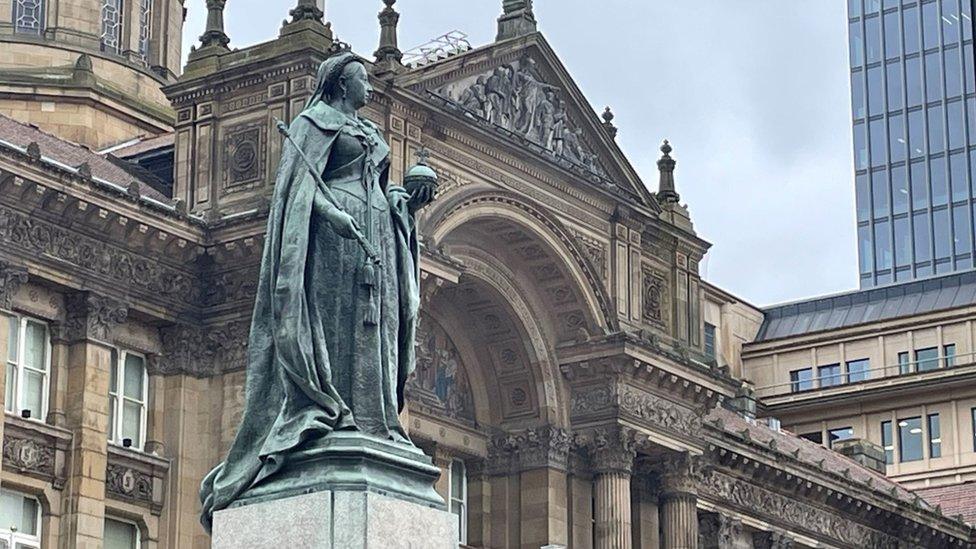Birmingham cuts: How much will my council tax bill be?
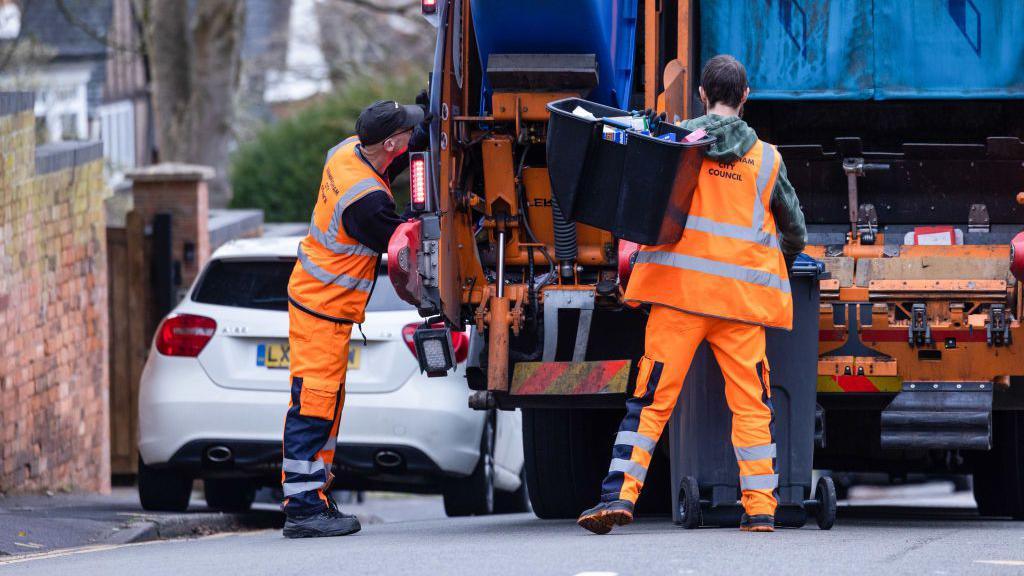
The council's financial situation is dire - and residents will have to pay more
- Published
Of all the cost-saving measures announced by Birmingham City Council, it is the one residents will feel the most.
A 21% increase in council tax over two years - but what does that actually mean in real terms?
It's part of wide-scale changes set to be put in place since the council, which serves more than one million residents and is Europe's largest local authority, ceased all non-essential spending and declared itself effectively bankrupt.
So just how hard will residents be hit in the pocket?
Will my council tax rise by 21%?
Council tax in Birmingham will rise by 21%, but over two years.
It means people will have to contribute a significant extra chunk to fund services including waste disposal and other vital functions.
Local authorities legally have to hold a referendum to increase tax beyond a 4.99% cap.
But the government earlier confirmed it would not block a request from the council to raise it even higher.
There will be a 10% rise in April this year, with a further 10% rise planned in April 2025.
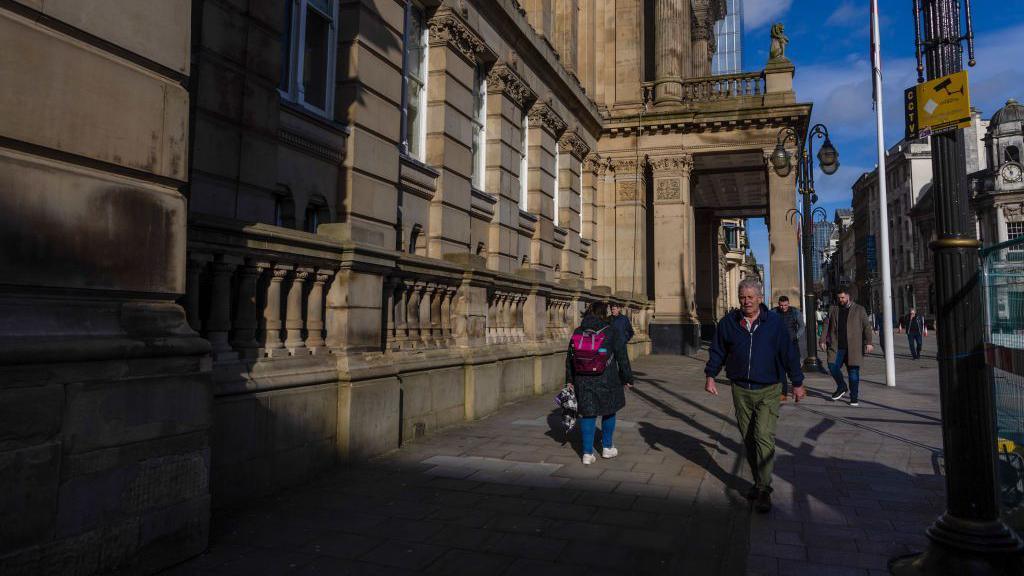
Some people in Birmingham will see their bills rise by hundreds of pounds
How is the 21% council tax rise calculated?
Council tax won't rise by 21% in one go, and this is where it gets slightly complicated.
Because of the compound effect of a two-year rise, a 10% increase on a 10% increase actually adds up to 21%.
Imagine your council tax is £100, a 10% increase this year would bring it up to £110.
The year after, it would be a 10% increase on £110, bringing your bill to £121, a 21% increase in total.
How much more council tax will I pay?
Let's start with how much extra Brummies will pay in council tax from this April.
The council tax you see on your bill is usually made up of the basic amount the council charges plus additional amounts (precepts) for the police and fire service.
For this, residents will see an increase of somewhere between £2.09 and £6.26 a week.
It all depends what band your property is in, with the proposed increase for an average Band D home coming in at £3.13 extra per week.
With the additional precepts - which are set separately to the council and not subject to the same increase - this equates to a yearly Band D rise of about £200.
These are the total charges households will pay in the 2024-25 financial year, before the extra precepts are taken into account.
Band A: £1,195.34 (£108.57 increase)
Band B: £1,394.56 (£126.66 increase)
Band C: £1,593.79 (£144.76 increase)
Band D: £1,793.01 (£162.85 increase)
Band E: £2,191.46 (£199.04 increase)
Band F: £2,589.90 (£235.22 increase)
Band G: £2,988.35 (£271.42 increase)
Band H: £3,586.02 (£325.70 increase)
As has been the case for many years, you'll pay more if you live in Frankley or Sutton Coldfield and have a parish council, which also levy their own precept.
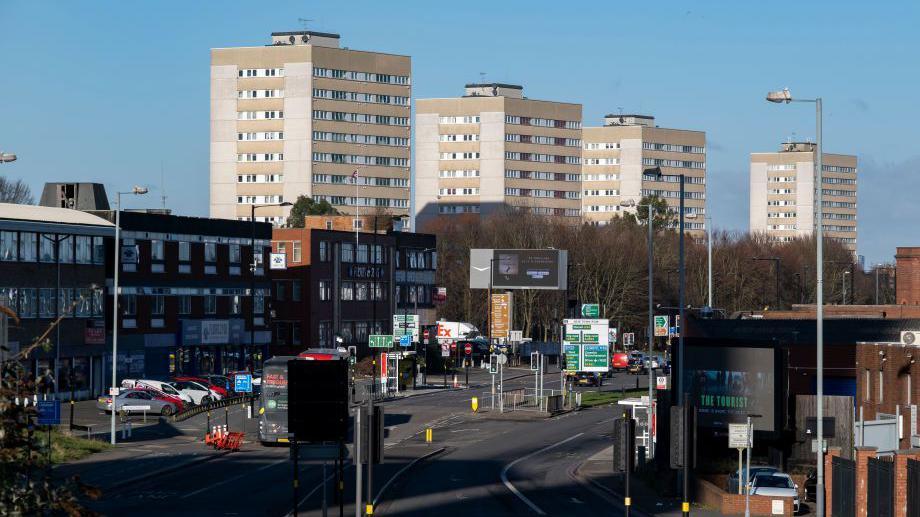
Birmingham City Council had to get special permission for such a council tax rise
What does this all mean and will it even make a difference?
The numbers can be confusing, but the simple fact is this - a 21% increase in council tax over two years is going to leave most residents hundreds of pounds worse off.
And there isn't an obvious silver lining.
While the figures above will seem large to many, it’s a drop in the ocean given the scale of the council's problems.
The council faces a budget gap of £300m over two years, is £1.25bn in debt to the government, has to face equal pay liabilities of up to £867m and worked up an overspend of more than £130m on an under-fire IT system.
The initial 10% increase, which was voted through and signed off on Tuesday, will raise just £21.8m of additional council income in the 24/25 financial year.
Despite the pain of the council tax rise, it barely makes a dent when it comes to the overall picture.
So what else is the council doing?
No part of the council has been left untouched by cuts and hikes.
Other measures include:
Bin collections becoming fortnightly from 2025
11 community centres being hived off
School transport for young people being placed under review
The scrapping of all arts funding
Reducing fly-tipping enforcement
Dimming street lights
Introducing parking charges in three country parks
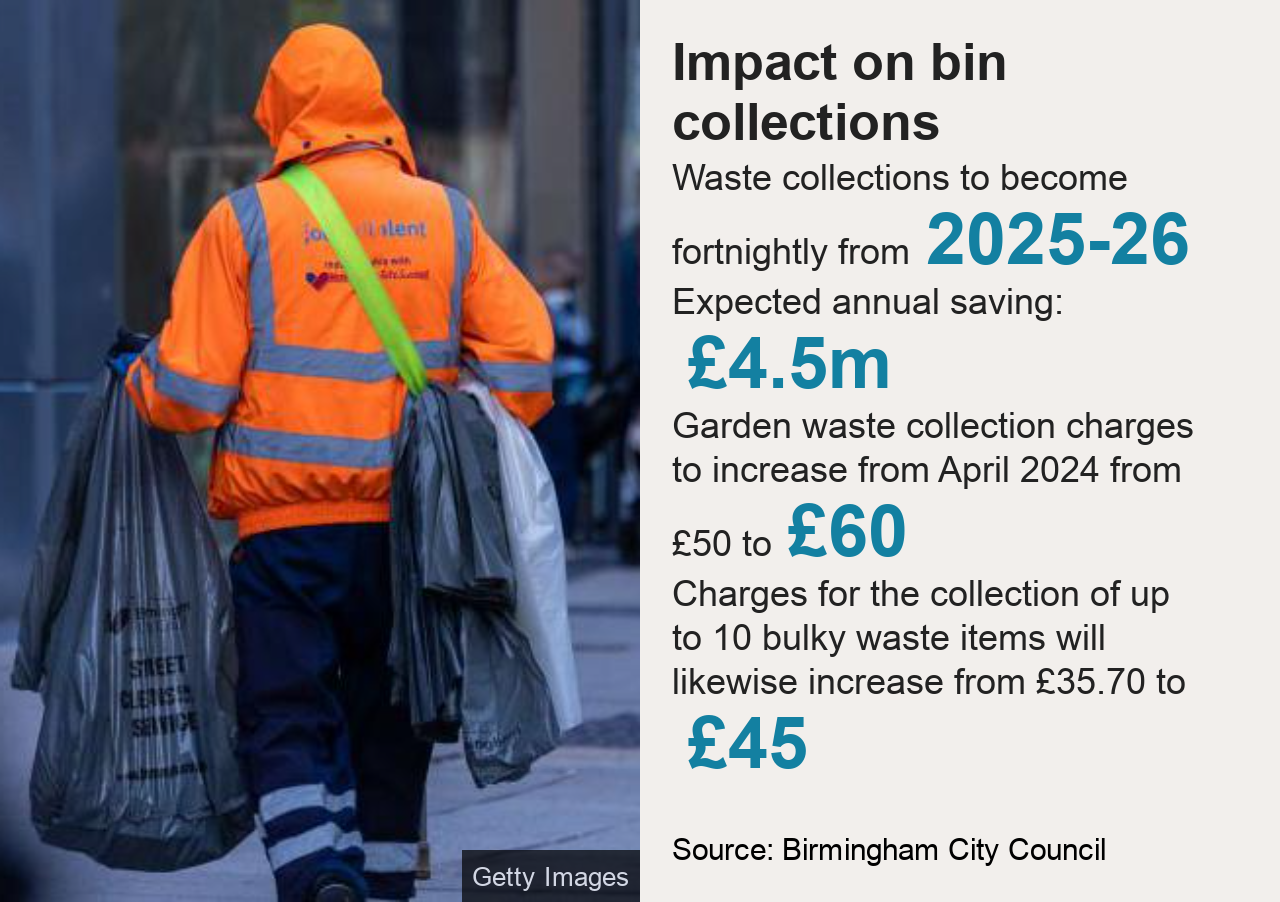
Follow BBC West Midlands on Facebook, external, X,, external and Instagram, external, Send your story ideas to: newsonline.westmidlands@bbc.co.uk, external
Related topics
More on Birmingham's financial crisis
- Published21 February 2024
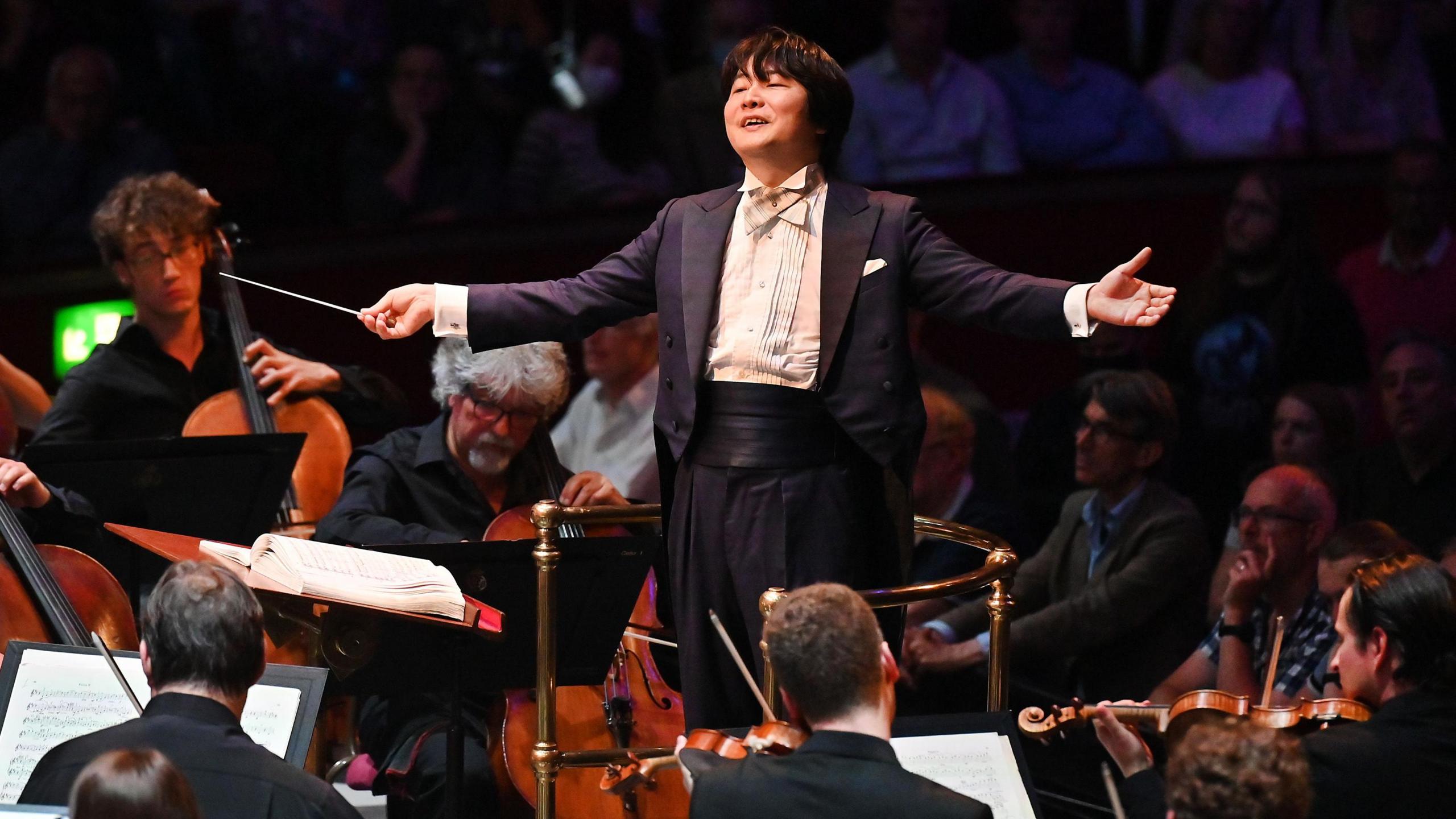
- Published20 February 2024
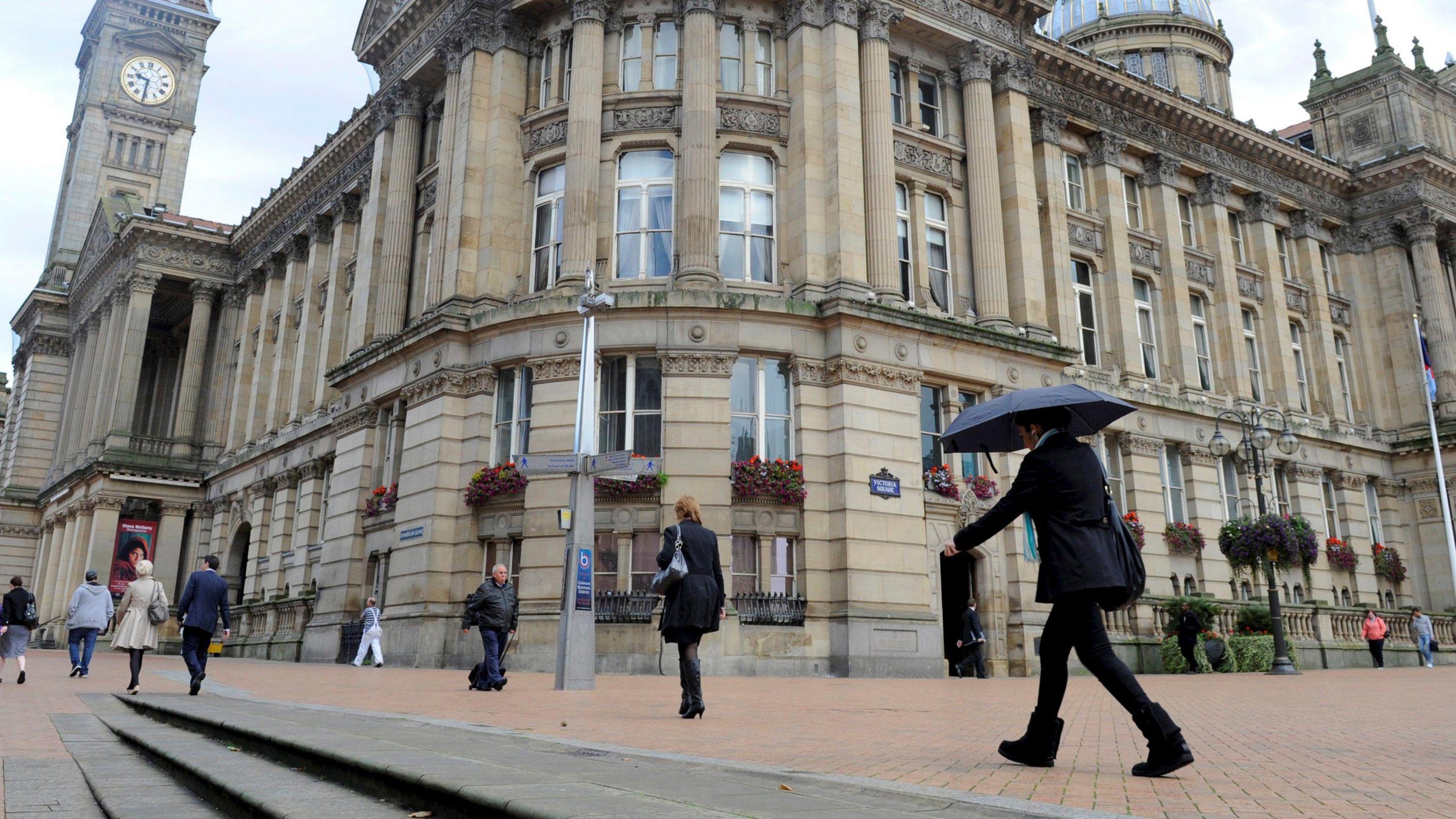
- Published20 February 2024
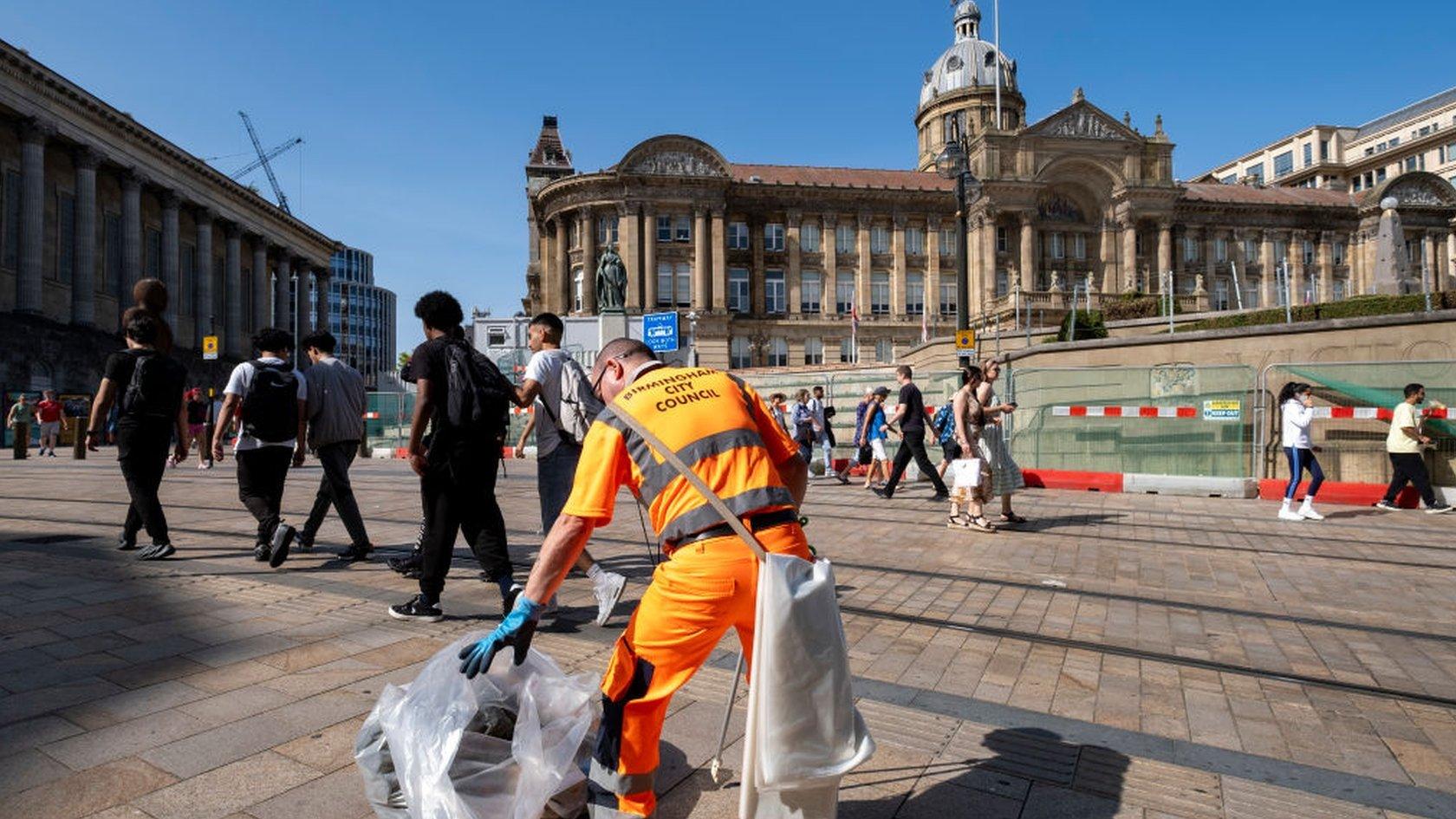
- Published19 February 2024
